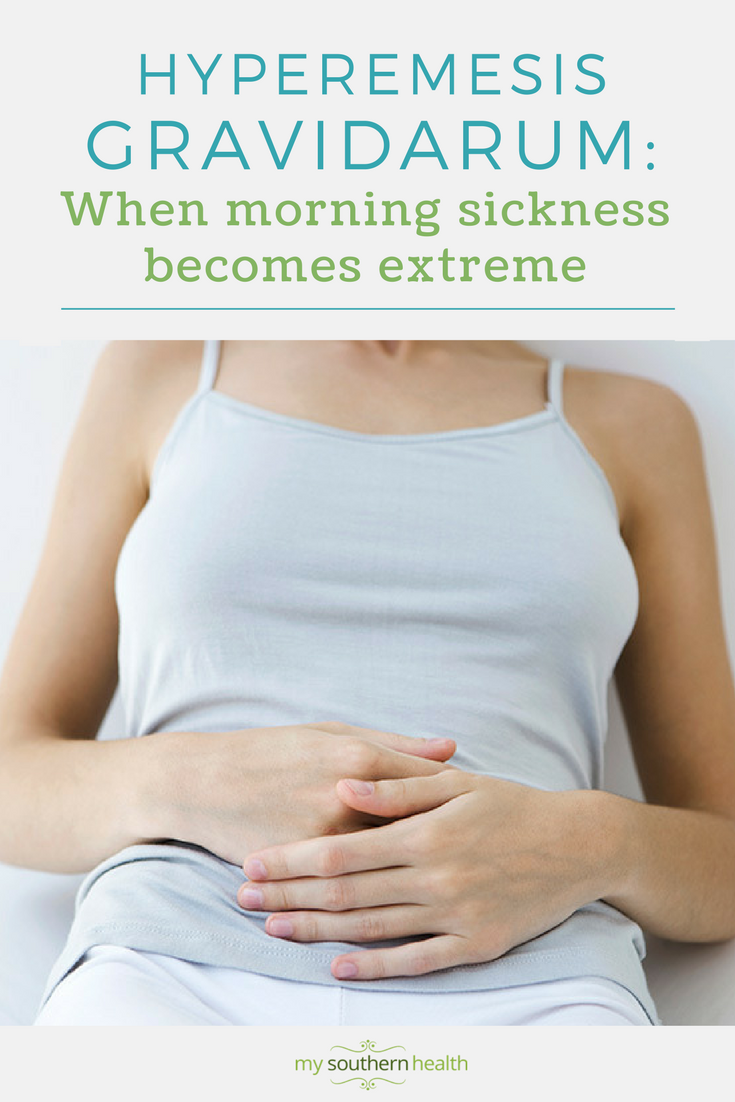Nausea is common in the first trimester of pregnancy. But some women suffer a severe version of it called hyperemesis gravidarum. Here’s what to know.
Morning sickness is bad enough when it strikes during one part of the day but leaves a pregnant woman able to eat and keep fluids down at other times. Severe vomiting during pregnancy, called hyperemesis gravidarum, is a bigger problem. Vanderbilt University Medical Center obstetrician Reesha Sanghani, M.D., explains this unpleasant condition and what to do if pregnancy has you confined to the bathroom.
What is hyperemesis gravidarum?
Many women experience “morning sickness,” which is not necessarily limited to the morning hours, as many women can attest. But some expectant mothers suffer much more severe vomiting. “When it gets to the point where they start getting severely dehydrated and losing weight” or not gaining enough weight, that’s considered hyperemesis gravidarum, Sanghani said.
What causes hyperemesis gravidarum?
Nobody’s certain of the exact cause of any pregnancy-related nausea. But the likely culprit is the sudden increase of the pregnancy hormone human chorionic gonadotropin (hCG). As a woman’s body cranks up production of hCG in early pregnancy, an upset stomach often comes with it. For some women, that morning sickness takes the more extreme form.
How is hyperemesis gravidarum treated?
The first step is hydration. Typically, a woman suffering with severe morning sickness will be admitted to the hospital to get IV fluids.
“Often if people are at that point, they also have electrolyte abnormalities,” a deficiency of minerals such as potassium, magnesium and calcium, Sanghani said, and vitamin B1 (thiamin). The deficiencies occur because she can’t keep food in her stomach long enough to allow the stomach to absorb these nutrients. Doctors will try to get her electrolytes back up to normal levels.
Prescription anti-nausea medication is meant to calm a woman’s stomach enough so she can keep food and drink down. Studies have not shown any harmful effects on the fetus from these medications, Sanghani said.
How long does this misery last?
Like the more typical form of morning sickness, hyperemesis gravidarum usually eases up by the 12th to 14th week of pregnancy, and nearly all women are clear of it by the 16th to 20th week.
Extreme morning sickness does not cause any complications in labor and childbirth, Sanghani said. (Women who have C-sections may feel nausea that’s a side effect of some pain medications; this is not the same as hyperemesis gravidarum.)
What can women do to manage their nausea?
After the most severe vomiting is under control, there are several things that can help a woman feel more comfortable. Some studies show that over-the-counter vitamin B6 supplements and doxylamine (Unisom), taken together or separately on a daily basis, can help prevent pregnancy-related nausea, Sanghani said. Peppermint herbal tea and ginger in any form (ginger ale, ginger candy, whatever you prefer) help soothe the stomach. But Sanghani’s strongest advice is to nibble small amounts of food throughout the day.
“Avoid an empty stomach and a full stomach. It’s when your stomach is too empty or too full that you get nauseous,” she said. “Small, more frequent meals are important. Avoiding things that can irritate your stomach — like spicy foods, or coffee — would probably be smart.”
If you experience this extreme nausea with one pregnancy, are you doomed to have it again during later pregnancies?
Not doomed, but it’s possible, Sanghani said. About 15 to 20 percent of women who experience hyperemesis with one pregnancy will go through it again in subsequent pregnancies.
What about the folk wisdom that feeling nauseated during pregnancy indicates that your baby is a girl?
And does lack of morning sickness mean you’re carrying a boy?
Nope, there’s no scientific data to back that up, says Sanghani. “It really is an old wives’ tale.”


Vanderbilt Women’s Health provides care for women at all stages of their lives at locations across Middle Tennessee. Learn more here or call 615-343-5700.

